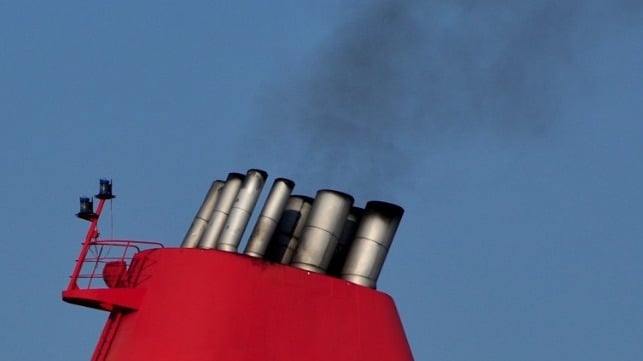IMO Green-Lights Mediterranean ECA, Promises More Greenhouse Gas Talks

Last Friday, the 79th meeting of IMO’s Marine Environment and Protection Committee (MEPC 79) came to a close with the successful implementation of an emissions control area (ECA) for the Mediterranean Sea. From May 2025 onwards, ships operating anywhere in the Mediterranean (including the Adriatic and the Aegean Seas) will have to use 0.1 percent sulfur fuel oil, which will reduce regional air pollution.
As in past meetings, MEPC 79 also saw an extended discussion of options for greenhouse gas regulation. More conversation and debate on GHGs is expected in the run-up to MEPC 80, where IMO member states will again discuss a revised GHG reduction strategy.
Several member states have proposed submissions that would push IMO into adopting a more ambitious approach. These members recommend IMO to commit to a full transition to zero carbon emissions by 2050 – twice the level of the IMO’s current ambitions. Countries pushing for targets that are more ambitious include the United States, leading EU member states, the Marshall Islands and Solomon Islands.
The IMO’s slow pace in negotiating for a revised and ambitious emissions target appeared to irk delegates from small island developing states, which face a substantial and immediate threat from rising seas. “We are going to continue to progress the work . . . but wish to register our disappointment that once again we have kicked the can down the line,” said Marshall Islands Ambassador Albon Ishoda last week, expressing his nation’s disappointment.
During the session, member states did agree to adopt two voluntary GHG resolutions. The first encourages cooperation between the port and the shipping sectors to contribute to reducing emissions. Under this resolution, green corridors and other similar collaboration concepts got a nod. The second resolution encourages member states to develop and submit voluntary National Action Plans (NAPs) to address GHG emissions from ships.
“It cannot be stressed enough how crucial it is that we keep the momentum and deliver an ambitious and fair, revised IMO GHG strategy at MEPC 80 next year,” said IMO Secretary-General Kitack Lim in a post-meeting address.
Some observers at MEPC also noted signs of change in the tenor of the discussions, with more member states open to considering GHG regulation.
“Discussions surrounding IMO’s GHG strategy show promise. There is a growing base of support in the committee to proceed with development of a GHG levy as well as development of a GHG fuel standard. Significant differences remain to be resolved on the use of tank-to-wake and well-to-wake GHG factors and the use of funds, but there is a growing sense of agreement on the principal mechanisms,” said John Butler, President & CEO of World Shipping Council (WSC).

that matters most
Get the latest maritime news delivered to your inbox daily.
IMO's consensus-driven legislative process requires unanimity for major changes, and the agency acknowledges that this takes time. IMO has been considering the impact of GHG emissions since 1997; given the challenges of achieving unanimity at MEPC, some environmental groups have begun to call for a change of venue for regulation. The EU decided to chart its own course on shipping emissions last year, and IMO's pace was a key factor in the decision.
European NGO Transport & Environment has advocated for other developed nations to follow the EU's lead. “With the vast majority of ships passing through Europe, China, and the US, these leading economies can unilaterally regulate emissions without relying on the ineffective IMO,” said Jacob Armstrong, sustainable shipping officer at T&E, in a statement last month.
